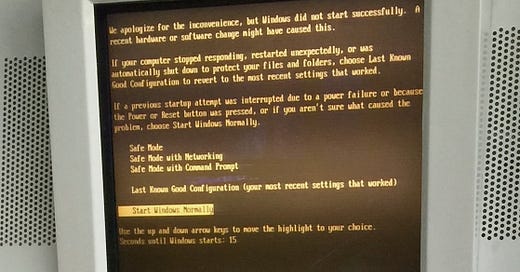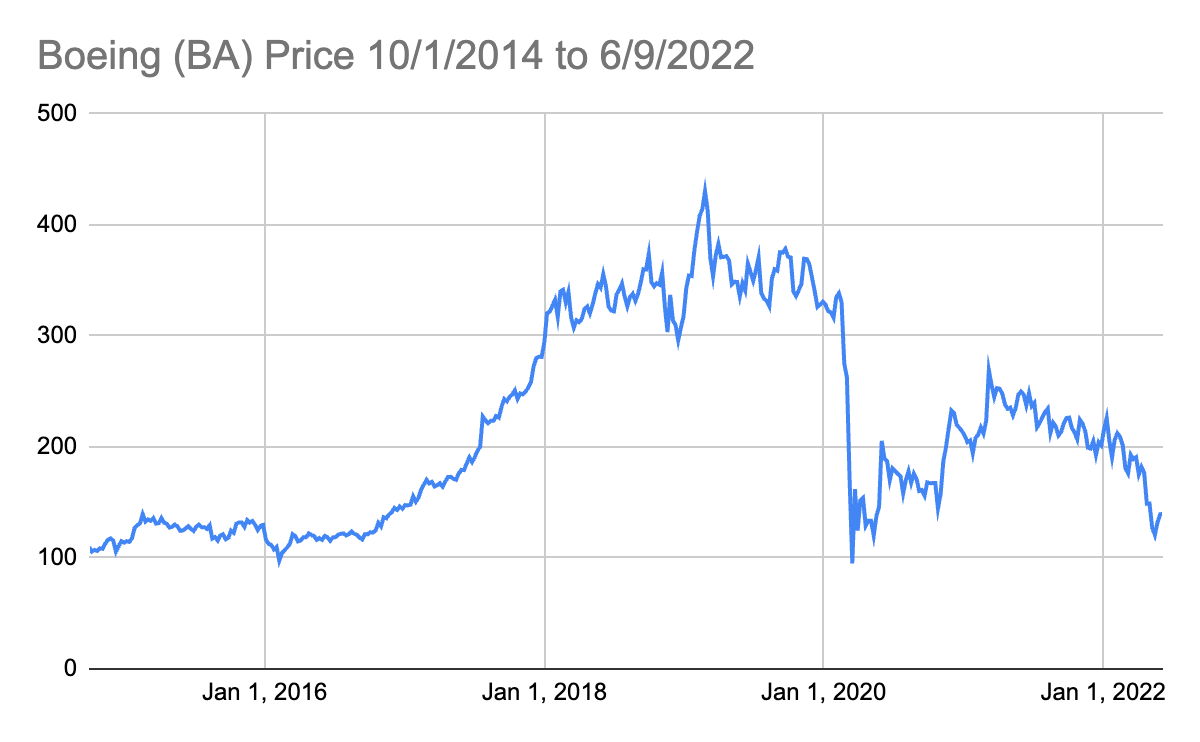“Bad things can happen to anyone, but only the famous have to read about them in the news.”
Recently, in both “Retirement Portfolio Apologies” and “Messy Portfolio Admissions,” I wrote about the need to diversify investments, maintain a beginner’s mind with many possibilities, and gain experience from mistakes. In this post, I’d like to provide some exposure to a different kind of investment mistake we were involved in with a little-known private equity fund involved in automated teller machines (ATMs).
Familiarity with public scandals
With publicly traded stocks, most are familiar with widely known scandals because they make big news. Back during the dotcom era, we personally lost money on two of the 5 most publicized ethics violations by CEOs — Worldcom and Tyco International despite intentionally staying away from young dotcoms in our portfolio! Cendant was another bankruptcy during that period that immediately comes to mind for me. We lost quite a bit of money in these and other very public scandals of the era.
Right now, one of the biggest newsmakers is with aerospace leader Boeing. It seems like the last few years have been a nonstop public relations nightmare for Boeing, including the 737 MAX crashes and door plug failure, quality issues, whistleblower deaths, a strike of over 33,000 factory workers (still ongoing at this time), and even a failed space mission with the Starliner. Moreover, in the legal system, Boeing pleaded guilty to a criminal fraud conspiracy charge.
I am grateful that we didn’t take a loss on the stock (having bought in 2014 and sold in 2022) and it was paying dividends all along the way. Still, it is important to see that investors who bought when the stock was trading over 400 got hurt! And this is for a company that is the world leader in commercial aerospace, an important US defense contractor, and one of the United States’ top exporters.
(As a side note, I am also grateful for the history of Boeing in Seattle. This company played a very significant role in our lives. I grew up in Seattle because my dad got recruited by Boeing Scientific Research Labs in 1962 before starting his own company. Marsha’s dad worked for Boeing his entire career.)
Quiet scandals in private equity
The trick in private equity is that many scandals and other investment mistakes are just that — private — with very little information that is typically exposed. Often, there are non-disclosure agreements or just tight business relationships involved. However, in this particular case, a set of legal filings and related press coverage have shed light on a whole set of details on one particular private equity investment we’re involved in. We have heard verbally of both potential FBI investigations of potential criminal activity and SEC investigations of potential securities fraud violations.
While private, the scope of this case is large, as this particular investment involved over 2,700 investors across 25 funds and $700M of invested money. A lawsuit asserted that over $80M was due to Prestige Fund investors for missed payments from Paramount Management Group for a period from April through August of this year, with $18M due each month thereafter.
In our case, we had invested in the Prestige Fund D through an SPV at the end of 2019, with an expected 7-year fund life to be paid quarterly. The last payment we received was in April of this year, so we only received 4.25 years of a 7-year investment, losing out on the last 2.75 years of payout. Our distributions have returned over 80% of our original investment so far.
There is a settlement offer from the Paramount Management Group for a portion of the money owed to Prestige investors since April to now, as well as a lump sum payment to buy-out the remaining obligations. I am not personally holding my breath for the settlement. The original October 21st deadline for the first settlement payment from Paramount came and went, and the new due date is October 31st (yes, tomorrow!)
This investment is a write-down.
Why did we invest?
I mentioned last week that we had a desire to target our private equity investments. Just like how mutual funds and ETFs can help public market investors diversify, big players like JPMorgan do package up “fund of fund” vehicles to diversify private equity investments for clients like us. Unfortunately, these vehicles tend to come with high, layered fees and do not provide ideal ways to target specific objectives so that we don’t go “overweight” in sectors like early stage technology companies when combined with our other investment activities. As such, we have chosen to build a small portfolio of targeted alternative investments.
This ATM private equity investment seemed to be an interesting vehicle for retirement that could provide predictable cash-on-cash returns, with an interesting tax benefit. There were several reasons we invested.
Cash-on-cash returns. The investment was in a network of automated teller machines (ATMs). The fund was targeted to invest in 2,000 ATMs across over 10 states, with locations including all of the McDonald’s in New York City and the five boroughs, Walmart, Sam’s Club, Exxon, Sunocolo, the NJ Transit Authority (rest stops), and Newark Airport. Targeted sites were to have high foot traffic with an average volume of 500 transactions per month, with some sites getting up to 4,000 transactions per month. ATM service charge fees were typically $2.00-$3.50 and split among the retailers, the Paramount Management Group, and Prestige Fund investors. Our SPV’s share was $0.63 per transaction for our share of the machines. Cash-on-cash returns, net of fees, were projected to exceed 20% per year.
Tax benefits. In addition to the cash-on-cash returns, there was also the benefit of receiving a pro-rata share of a straight-line depreciation over a 5-year period. This depreciation benefit provided another 7% per year to cash-on-cash returns for the first five of the seven years of the fund.
Past experience of operators. Prior to our investing in the fund, Prestige Funds and Paramount Management Group had been in this business together for years. We participated in the team’s fourth fund, and they had over 8,000 machines in operation. We thought there was a proven track record here.
Uncorrelated with other investments. Moreover, the investment seemed like a solid play that seemed completely uncorrelated with our other investments in stock, bond, and real estate markets. And the usage of high traffic ATM machines didn’t seem to ebb. Despite the fact the overall trend is away from cash, in favor of Apple Pay, Google Pay, and credit cards, there is a whole segment of society that continues to be underbanked. Consider this statistic from 2024.
“Lower Income (Under $35,000): Cash reigns supreme (around 52% of transactions) due to limited access to credit or banking services. Debit cards see some use (28%) for managing finances, but credit card use is minimal (10%) to avoid potential debt traps.”
For the first four years of the fund, this strategy appeared to be working. As expected, the first year offered somewhat lower cash-on-cash returns (just under 18%) as the new machines were being set up. In years 2-4, the cash-on-cash returns exceeded 21%, right in line with expectations. This all seemed to be going well, and the business model seemed solid for the next 2.75 years to generate expected returns.
What went wrong? Did the business grow too fast? The current claim is that the ATM network across all the funds now exceeds 25,000 machines, so Paramount may have run out of locations that could sustain the target transaction volumes.
Was it a Ponzi scheme, paying us earlier investors with the funds from follow-on investors? We don’t know yet, but I was surprised that the size of the investment pool had grown to $700M.
Either way, much like our public stock investments that went sour, this is a write-down for us, with perhaps some potential for partial recovery from legal actions.
What next?
I mentioned two weeks ago that managing risk in a portfolio was always about accepting that some parts of the portfolio will just suck. That was true this time around with this small, private equity investment. As mentioned, in the public markets expecting some stocks to underperform is a well-understood concept, as it’s easy to look at the past and remember that big winners like Apple, UnitedHealth Group, and Visa make up for losers like Worldcom, Tyco International, and Cendant. And, it’s easy to see how even the most “blue chip” of stocks like Boeing can face a reversal of fortune. In this case, we simply got direct exposure to sucking this time around just as we did with individual stocks we have held in the past.
I mentioned last week that experience comes from good feedback on mistakes. In my opinion, the lesson learned was not that all small, private equity investments are money losers. Just as with big, reputable companies, there is a spectrum of winners and losers.
Some key lessons:
Caution with checks and balances. Prestige Fund and Paramount Management Group were too closely linked, with a key defendant (Daryl Heller) playing major roles in both. When we purchased the investment, it was positioned that Paramount (as the operating company) was “internal” and more of a vertically integrated / cost efficiency play for Prestige Fund. In the end, the closeness of the relationship likely did not force the right checks and balances, opening up the opportunity for taking shortcuts, or worse yet, corruption.
Businesses could be good even when players are not. The high-volume ATM business might still be a good one, even with this bad partnership. What’s interesting is that Prestige Fund wanted to simply exercise its right upon payment default from Paramount to recruit another operating company to run the ATM network. However, the Paramount Management Group is refusing to hand over the ATM network, and this refusal is providing some indication that Paramount may still believe there’s still a business there to profit from after a settlement.
Taxes got a little more complex. This kind of investment created a more complex tax situation for us personally. While there were tax benefits to this “pass through entity” including our ability to write off depreciation, the locations of these machines across states required tax filings in multiple states each year.
Overall, I remain open in retirement to continuing with a beginner’s mindset with many possibilities, including investing in private equity opportunities. I just hope to keep all the lessons learned in mind!







Buyer beware!
UPDATE: 12/6/2024: Today was a hearing with Daryl Heller, who pleaded the 5th. Testimony from other witnesses revealed that the ATM network is only half the size they claimed it to be...
https://lancasteronline.com/business/local_business/witnesses-at-contempt-hearing-say-lancaster-based-atm-network-is-less-than-half-purported-size/article_d7fdb43c-b425-11ef-af04-5b34ef4ffbd5.html